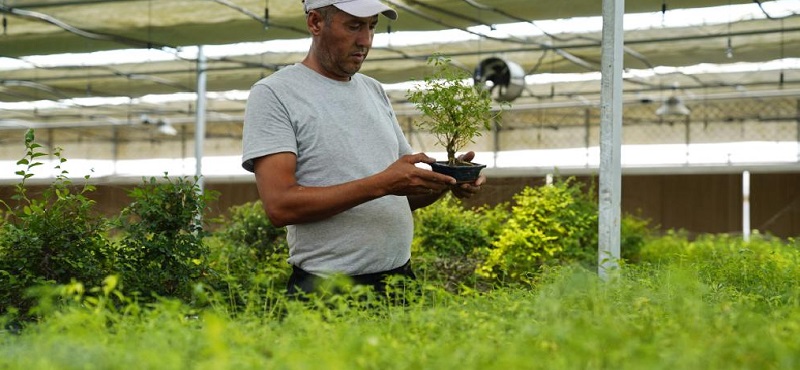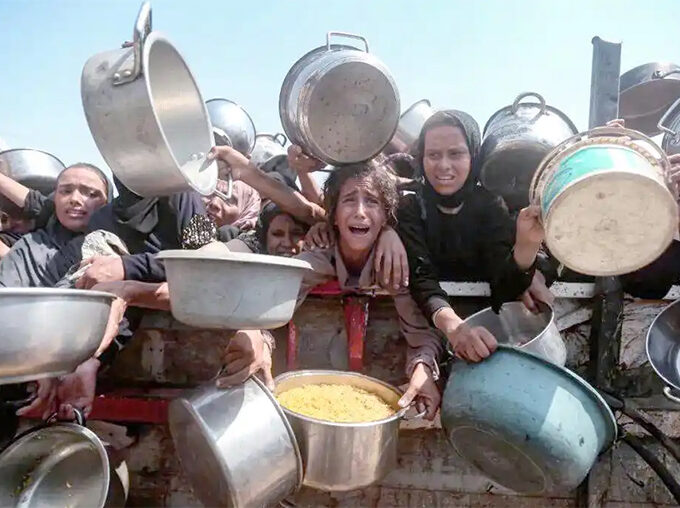In Uzbekistan’s cotton fields, Chinese drip irrigation technology has enabled cotton farmer Bekmatov to enjoy a bountiful harvest. In Pakistan’s Punjab province, high-yield, high-quality hybrid rapeseed varieties offer farmers hope for increased income. In Russia’s Primorsky Krai, once-abandoned paddy fields now wave with golden waves of rice…
These are just a few examples of China and other Shanghai Cooperation Organization member states sharing the beauty of harmonious coexistence, solidarity, and cooperation. Within the SCO framework, fruitful agricultural cooperation between China and other countries has elevated regional agricultural technology, promoted food security and sustainable development, achieved significant growth in comprehensive benefits, and injected a steady and strong impetus into regional agricultural modernization.
Chinese Agri-Firms Drive Tech in Crops
“Drip irrigation technology allows cotton to drink water precisely, allowing it to grow stronger!” Bekmatov, a cotton farmer in Uzbekistan’s Syrdarya Oblast, exclaimed heartfeltly. In 2020, he became one of the first local cotton farmers to introduce China’s sub-mulch drip irrigation technology. Two years later, his cotton yield per unit area was 30% to 50% higher than that of other local farmers. In the third year, he successfully doubled his yield.
Uzbekistan is a major cotton producer. However, because cotton cultivation is mostly done using flood irrigation, which consumes a lot of water, it is difficult to increase yields per unit area.
How can cotton fields in the country’s arid regions both “quench thirst” and achieve high yields? A team led by Zhang Yuxin, a cotton farmer in Xinjiang, China, is using sub-mulch drip irrigation technology to guide Uzbek cotton farmers in meticulous water, fertilizer, and pesticide management. They are also optimizing fertilization strategies for the alkaline soils common in Central Asia, significantly improving water and fertilizer efficiency. This year, the team installed drip irrigation systems on approximately 5,000 mu (approximately 1,000 acres) of cotton fields in Uzbekistan’s Syrdarya Oblast alone.
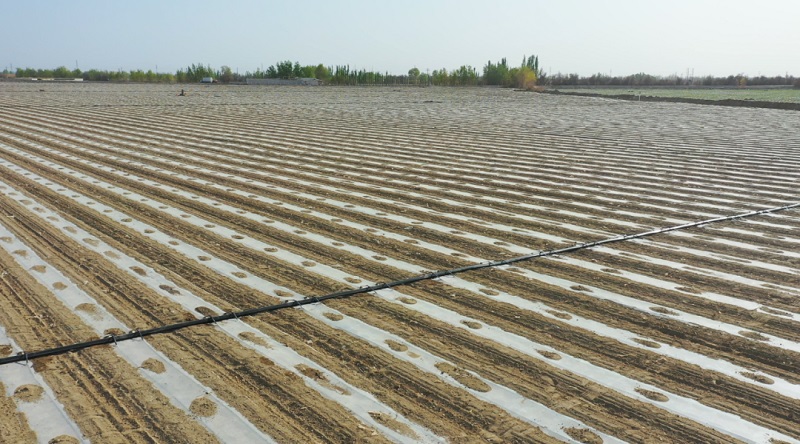
Pakistan relies on imports for 90% of its edible oil, at an annual cost of approximately $4 billion, 94% of which comes from palm oil. In 2022, a new hybrid rapeseed variety, jointly tested and screened by Chinese and Pakistani companies, entered commercial release in Punjab Province, Pakistan, enriching the country’s edible oil market and generating new income for local farmers.
According to Zhu Xiaobo, General Manager of Wuhan Qingfa Hesheng Agricultural Development Co., Ltd., the project implementer, this new rapeseed variety produces edible oil with low erucic acid content and high unsaturated fatty acids, meeting modern healthy dietary needs. Furthermore, the byproduct, rapeseed meal, is low in glucosinolates, making it easier to process into feed, thus improving overall profitability. This new variety boasts a yield increase of approximately 7% to 8% compared to local mustard varieties, enjoys a high purchase price, and is easy to grow, making it a popular choice among local farmers. To date, the variety has been promoted on approximately 1.5 million mu (approximately 1.5 million hectares).
Bashir, general manager of the Pakistani partner company, stated that the partnership with Chinese companies ensures a stable supply of high-quality rapeseed. This not only significantly reduces raw material and logistics costs, but also effectively increases the added value of the end product. The company plans to further expand its procurement scale and work with Chinese partners to cultivate local brands and jointly promote the extension and upgrading of the industrial chain.
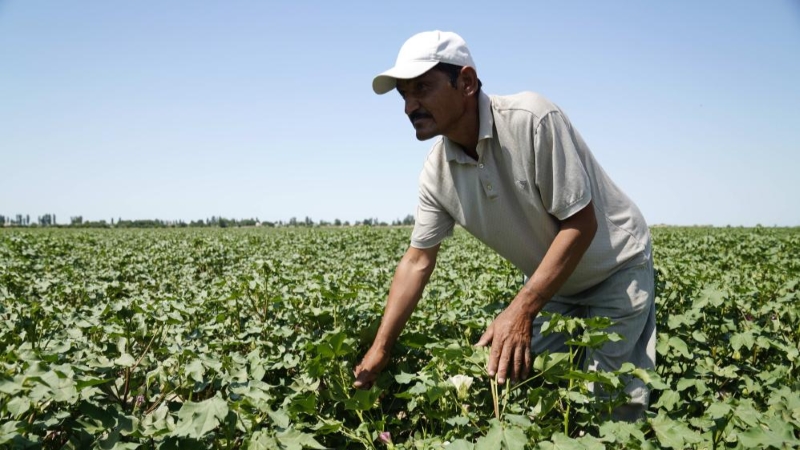
Cross-Border Cooperation Bolsters Farm-to-Market Chain
In Russia’s Primorsky Krai, farmer Nikolay vividly remembers the abandoned rice paddies of seven years ago: “We had good land and good water, but we lacked people, equipment, and even more so, technology!”
That same year, the Chinese agricultural company Jiawo Beidahuang Agricultural Holdings Co., Ltd. (Jiabei Agriculture) introduced dry-seeding rice technology to the region, launching large-scale cultivation and continuously expanding its production area. In 2023, Jiabei Agriculture and its domestic partners jointly registered Chinese rice varieties in Russia and built a technologically advanced rice processing plant in the Russian Far East. Today, at the company’s planting base, reporters saw vast expanses of rice, soybean, and corn fields.
The dormant “rice barn” has been awakened, and a new chapter in Nikolay’s story has begun. As a partner of a Chinese company, he not only revived production on his own farm but also encouraged surrounding farmers to participate in rice cultivation. “I didn’t know how to do it before, but now with China’s technology and industrial chain support, both production and income have increased.”
More importantly, through the collaborative efforts of Chinese companies, local logistics companies, and ports, a supply chain system has gradually emerged from production areas to consumer markets, encompassing professional logistics, rail transportation, and warehousing networks. This model has also been applied to crops such as soybeans and corn, gradually forming a vertical industrial chain of “seed breeding – planting – warehousing – processing – port shipment – international trade.”
The results of continued cultivation are gradually showing: the company’s rice has consistently won gold medals at the Moscow International Food Exhibition and silver medals from the Russian Ministry of Agriculture. Currently, the rice planted accounts for approximately a quarter of the rice grown in Russia’s Primorsky Krai.
Kazakhstan’s North Kazakhstan region, with its vast land, sparse population, and fertile soil, has long been subject to relatively extensive farming practices that have limited the stability of its yields. Xi’an Aiju Grain and Oil Industry Group has innovatively implemented the “contract farming” model in the region. By signing contracts, it guides farmers to scientifically plan their crops and implement diversified planting, resolving the financing difficulties and grain sales difficulties commonly faced by local farmers.
The industrial park connects China’s stable market demand with Kazakhstan’s high-quality agricultural resources. It has established multiple production units, including oil processing, flour production, and feed preparation, along with a grain depot and dedicated railway line, forming a complete industrial chain. Kazakh agricultural products are processed within the park into various grain and oil products, which can then be shipped to China and other markets via the China-Europe Express.
Grigory, a local farmer, said that after partnering with Chinese companies, the financial pressures and sales challenges that once worried him have disappeared. “Now, our produce can be sent directly to the depot. We no longer have to worry about processing, storage, and sales.”
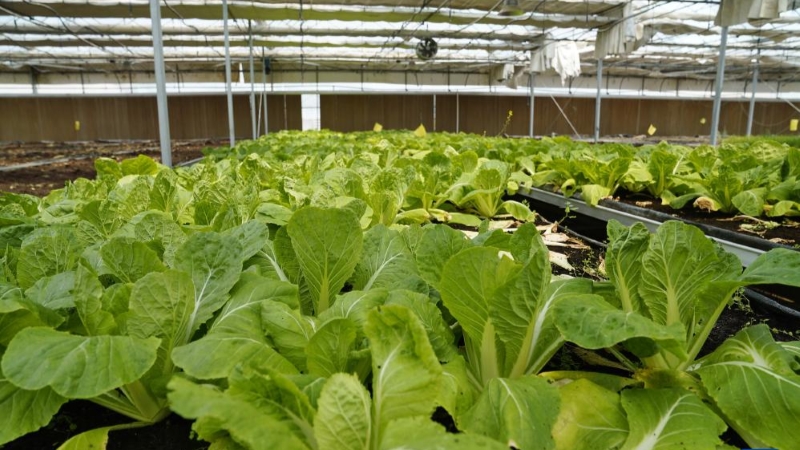
Skills Training Plants Seeds of Hope
Recently, Pakistan’s Ministry of Food Security held a farewell ceremony in Islamabad, the capital, for the second batch of nearly 300 trainees from the “Thousand Agricultural Talents Training Program in China.” They will travel to Yangling, Shaanxi Province, known as China’s “Agricultural Science City,” for several months of technical training.
The Shanghai Cooperation Organization Agricultural Technology Exchange and Training Demonstration Base, established at the Chinese initiative, is located in Yangling. Its mission is to promote the coordinated development of agriculture among SCO member states and regions.
SCO Secretary-General Yermekbayev said that in just a few years, the Yangling base has developed into “one of the most pragmatic and efficient cooperation platforms within the SCO framework.”
Pakistani Prime Minister Shahbaz stated that the first batch of trainees who went to China for training have returned home and will apply Chinese technology and experience to their own agricultural development. China has accumulated extensive experience in agricultural modernization, and Pakistan looks forward to Chinese advanced technology helping it achieve agricultural transformation and upgrading.
Agricultural mechanization engineer Mutassadiq Ali, one of the second batch of trainees, said, “China’s advanced technology enables targeted and precise crop cultivation. I hope this technology can be introduced to Pakistan, increasing agricultural production, raising farmers’ incomes, and driving economic development in rural areas.”
Data shows that the base has trained over 2,000 agricultural officials and technicians from SCO countries. Ten overseas agricultural technology demonstration parks have been established in countries such as Kazakhstan, Uzbekistan, Tajikistan, and Kyrgyzstan, and over 70 expert teams have been dispatched, bringing agricultural technology to approximately 30 million mu (approximately 16,000 hectares).
At the China-Uzbekistan Modern Agricultural Science and Technology Demonstration Park at the SCO Agricultural Base in Uzbekistan, fruit farmer Shakarbekov affirmed the success of the cooperation: “The establishment of the park has created new jobs and increased our income. I’m very happy to be working with my Chinese colleagues and learning new knowledge and technologies. I believe that through my hard work, I will be able to live a better life.”
Pragmatic and efficient cooperation has made farmland more productive and farmers more prosperous in SCO countries, contributing to enriching the tables of consumers in various countries and ensuring regional food security. Across the vast fields of the SCO, Chinese wisdom and solutions are bearing fruit, sharing the beauty of “harmonious coexistence, unity and cooperation” with all parties.


